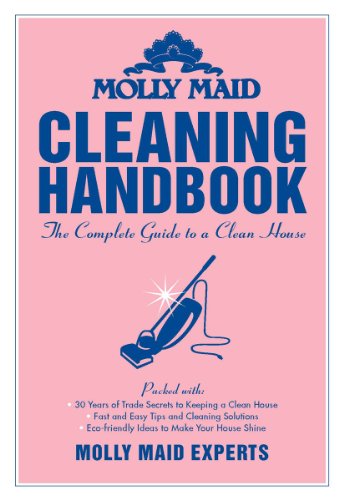
Sadly, the winter season is usually plagued with colds and flu and December is when infections tend to become prevalent.
Here, we look at some ways you can minimize your risk of catching colds and flu and hopefully the tips by Dr. William Bird, medical consultant of the Meteorological Office's Health Forecast Unit and shared by MOLLY MAID, the house cleaning professionals, will go some way to keeping you upbeat and well.
Wash your hands
Washing hands often – and drying them on disposable paper towels (or laundering hand towels regularly) – can significantly reduce the chances of catching a virus, especially the rotavirus, which tends to infect children around this time of year.
Watch the weather
Low cloud, dull and misty conditions tend to bring an increase in germs. Viruses survive longer when the weather is moist. They can hang in the air attached to water droplets more easily, and when it's cloudy and dull there are fewer breezes to blow the germs away.
Keep warm
Mom was right – keeping warm can help you avoid coughs, colds and flu. If we haven't started to wrap up in fall and then there's a sudden icy snap, we will be more likely to feel the cold and start to shiver. Did you know that shivering depresses the immune system and this makes us more likely to catch colds? Also, lower levels of sunlight and altered levels of hormones such as melatonin and serotonin negatively affect how the immune system performs. Also, we lose up to 30% of our body heat through our heads – so wear a hat!
Avoid huddling and heating
Because people are much closer together physically during winter, this makes it easier for infections to pass between people. Crowded trains and buses with little ventilation, department stores bustling with shoppers, and people gathering for parties all make catching a cold more likely.
Herbal help
If your immune system needs help to withstand the winter onslaught of germs, Echinacea should be an integral part of your daily routine. It is used to boost the immune system in fighting colds and flu, and also as an agent to help heal viral and bacterial infections, but it does lose effectiveness with lengthy usage. Consult a pharmacist on use and dosage.
Zinc and garlic
The mineral zinc is essential to help fight colds and provide a boost to a flagging immune system. Good food sources include meat, oysters, eggs, seafood, tofu, black-eyed peas and wheat germ. Zinc and Vitamin C make a great cold-busting duo. Garlic helps ease chest complaints, and small amounts taken daily may also reduce the frequency of colds and flu.
Drink plenty of water
Doctors recommend we drink about eight glasses of water a day to stay healthy. If you have a cold, being dehydrated makes you less able to cope against invading bacteria and viruses. If you've already caught a cold, drinking plenty of fluids will help flush out the infection.
Sleep soundly
Lack of sleep makes us more prone to infection as well moods, which affect our ability to fight off infections. If you feel stressed, you are more likely to become ill, then when you're happy and relaxed.
Take vitamins and probiotics
Taking a daily multivitamin is especially important in the winter when we may be less likely to be eating enough fresh fruit and vegetables, and are also more at risk from infection. Probiotics, such as lactobacilli and bifidobacteria, are 'friendly' bacteria in our intestines and increasingly recognized for their importance not only in maintaining a healthy digestive system, but for improving the body's natural defence mechanisms. However, MOLLY MAID does suggest consulting your physician prior to taking any supplements.
Stay warm and healthy this winter.

